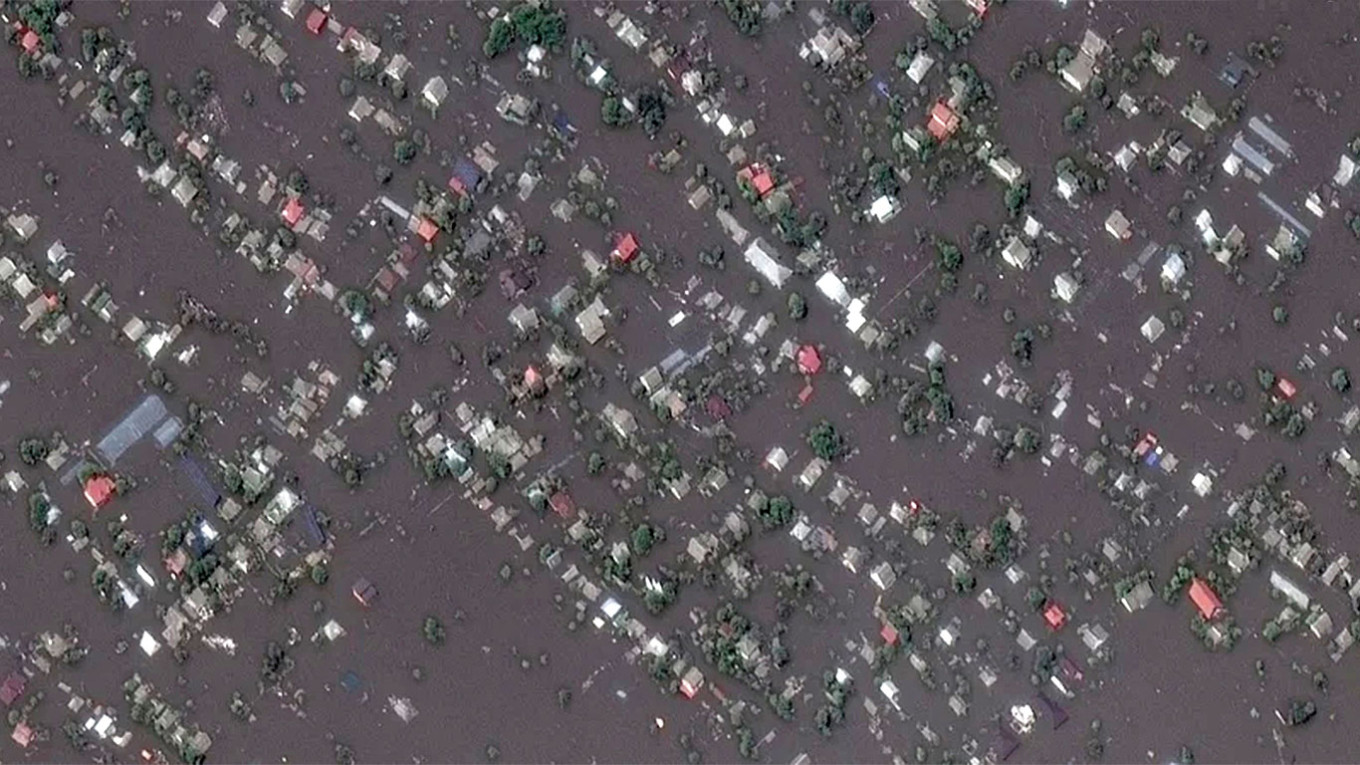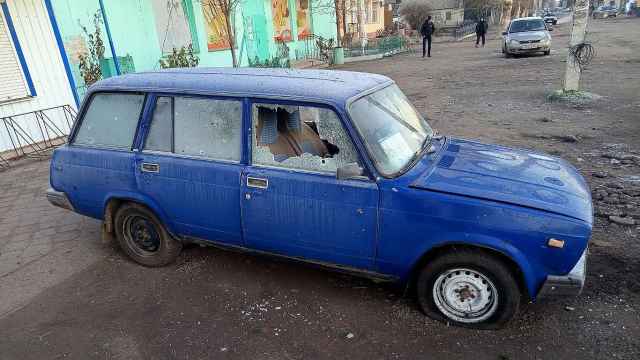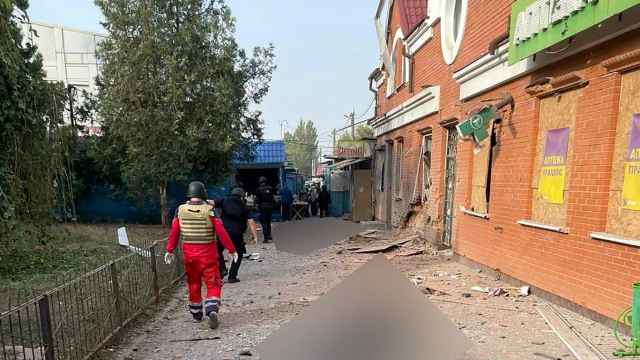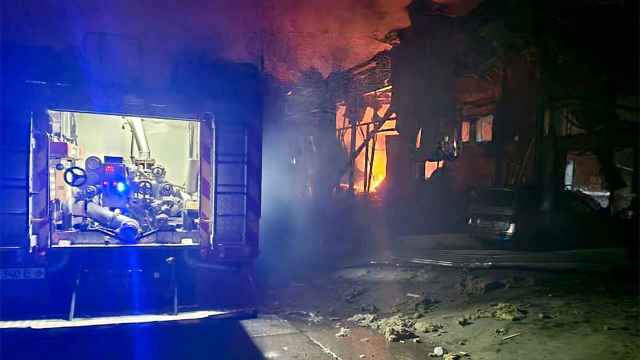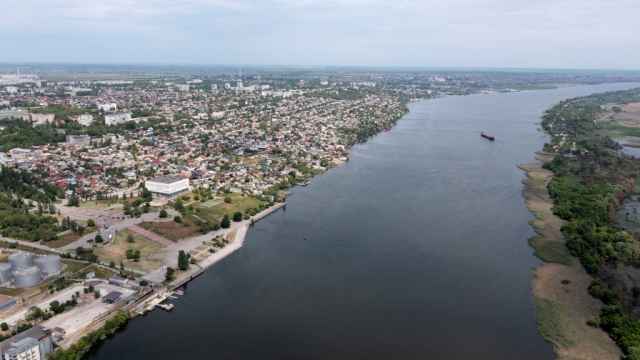Russian occupying authorities “vastly and deliberately” played down the death toll from this summer’s destruction of a Moscow-controlled dam in southern Ukraine, the Associated Press reported Thursday, citing residents, volunteers and health workers.
Moscow-installed officials said 59 people drowned in the days after the June 6 Kakhovka dam breach, which sparked massive floods in the Kherson region over the next 19 days. Russia and Ukraine have traded blame over the dam's breach on the Dnipro River.
According to AP’s investigation that focused on the town of Oleshky, one of the most-populated places affected by the flooding, health workers said they believed 200-300 people had died there.
Oleshky had a population of 16,000 before the flood.
A volunteer who spoke with AP on condition of anonymity said she and her team picked up at least 100 bodies before she was threatened and blocked from collecting any more by the local Russian-installed authorities.
The news agency said the high death toll was partly caused by the authorities downplaying the consequences of the damage, which led residents to believe they would not be affected.
Several of AP’s interview subjects described mass graves where bodies were hurriedly buried in the first days of the floods.
AP was able to confirm the location of at least one mass grave in the yard of a local Orthodox church.
Residents, volunteers and health workers told AP that occupying authorities were “nowhere to be seen” for the first three days after the destruction.
When they returned on June 9, AP wrote that the authorities strictly forbade doctors at a local hospital from issuing death certificates for drowning victims, but allowed them for those who died of natural causes.
Many of those who were willing to speak with the U.S.-headquartered global news agency asked for anonymity out of fear of undermining the safety of family members left behind in Russian-occupied territory.
A Message from The Moscow Times:
Dear readers,
We are facing unprecedented challenges. Russia's Prosecutor General's Office has designated The Moscow Times as an "undesirable" organization, criminalizing our work and putting our staff at risk of prosecution. This follows our earlier unjust labeling as a "foreign agent."
These actions are direct attempts to silence independent journalism in Russia. The authorities claim our work "discredits the decisions of the Russian leadership." We see things differently: we strive to provide accurate, unbiased reporting on Russia.
We, the journalists of The Moscow Times, refuse to be silenced. But to continue our work, we need your help.
Your support, no matter how small, makes a world of difference. If you can, please support us monthly starting from just $2. It's quick to set up, and every contribution makes a significant impact.
By supporting The Moscow Times, you're defending open, independent journalism in the face of repression. Thank you for standing with us.
Remind me later.


